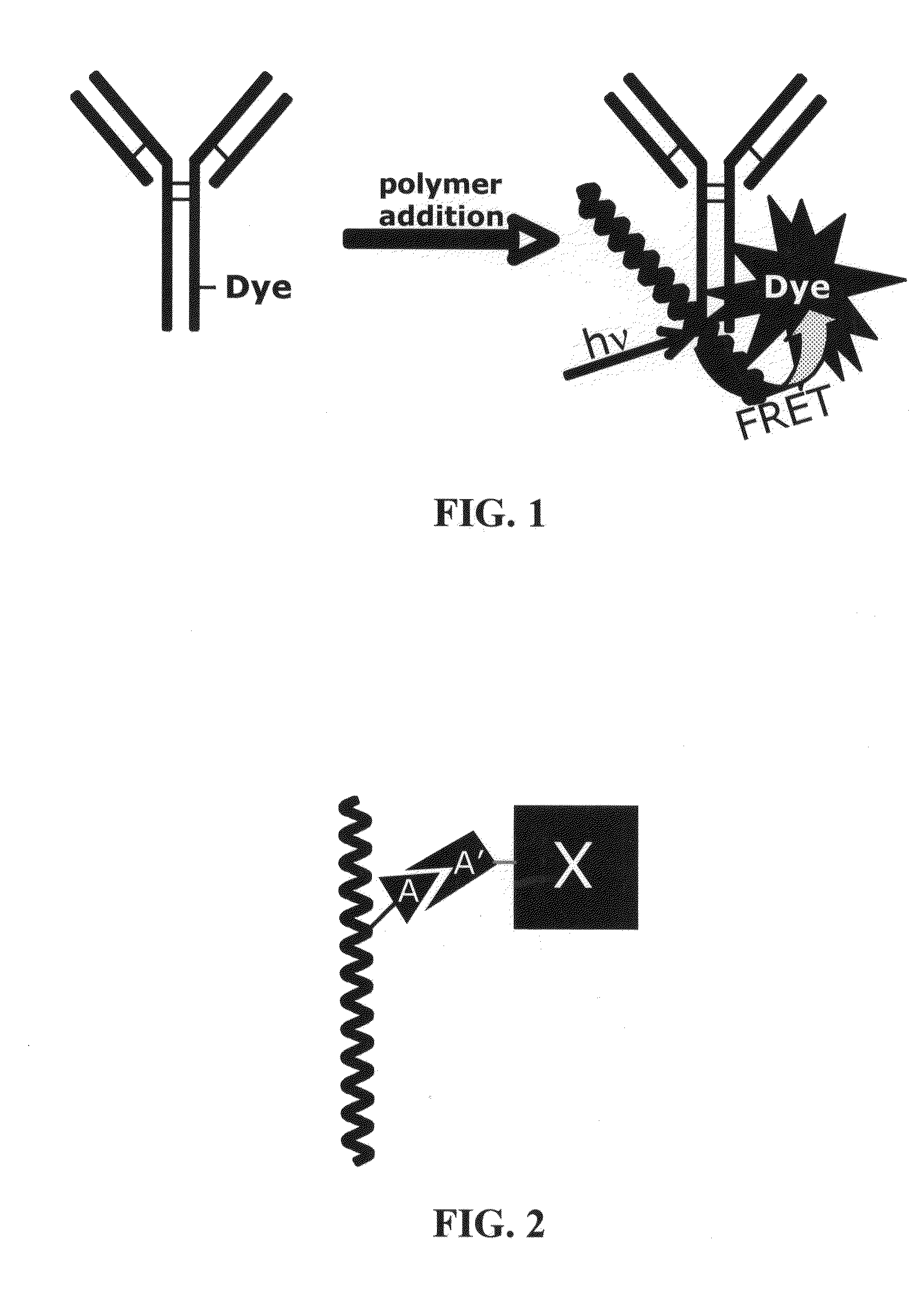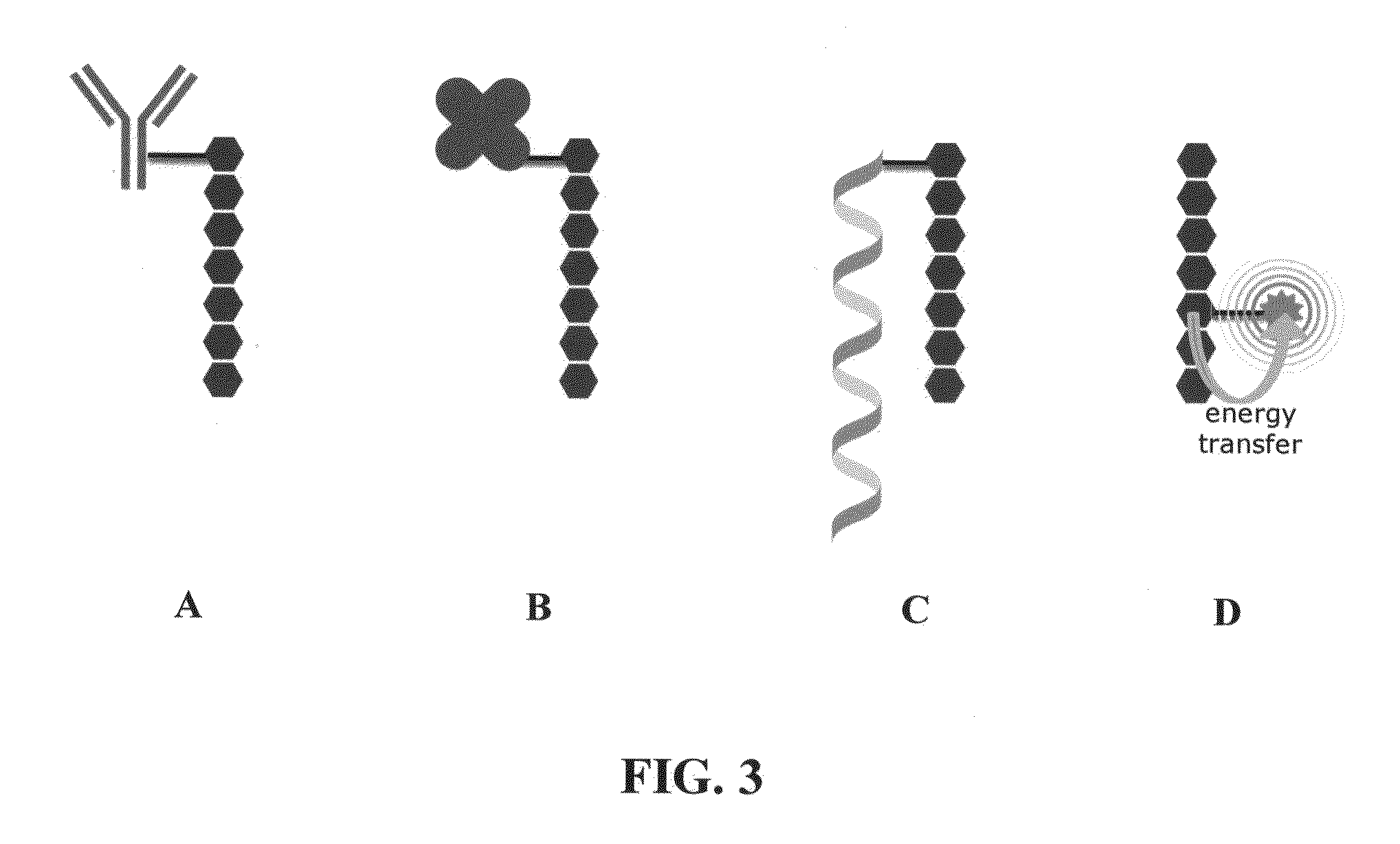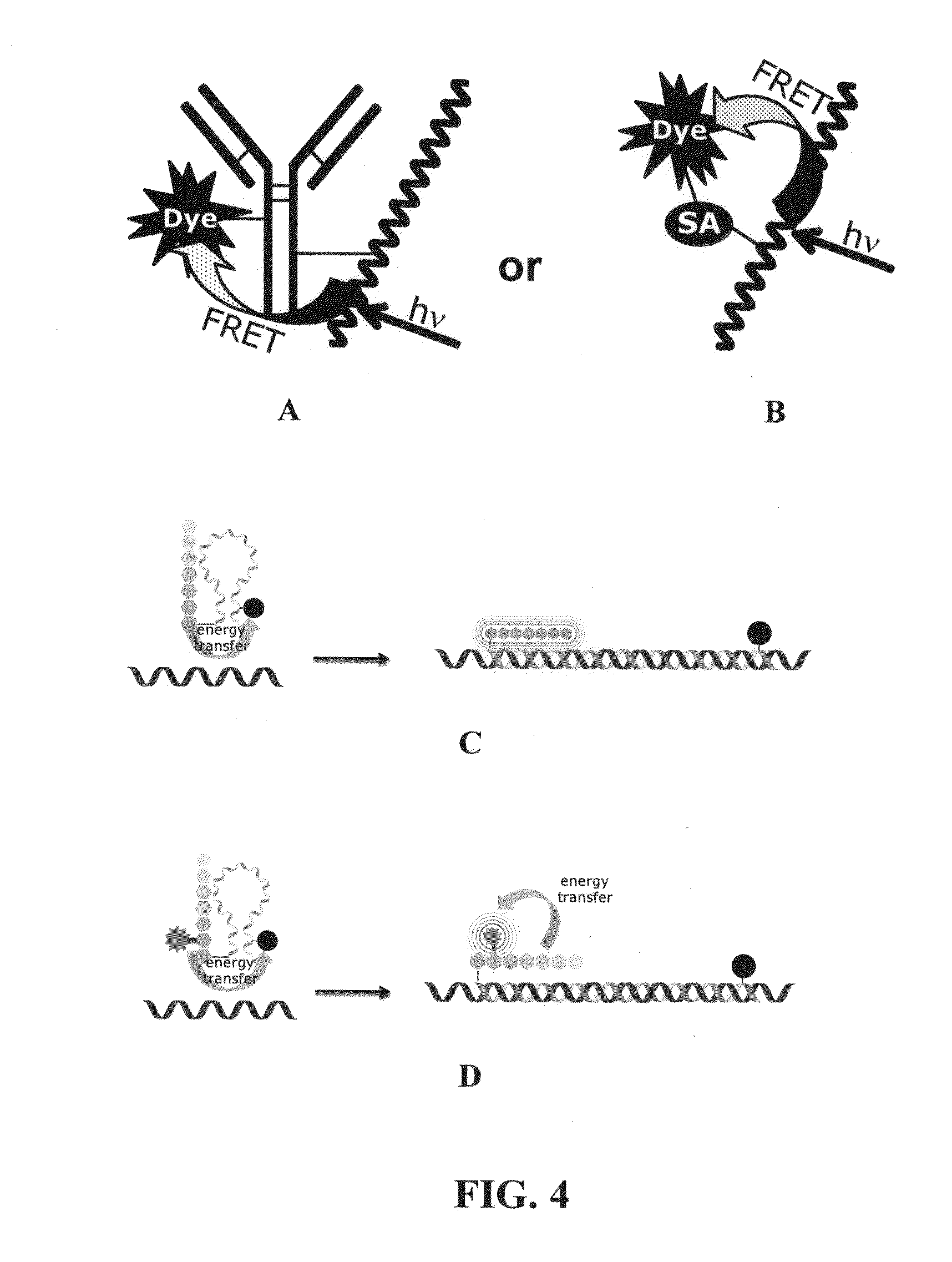Novel reagents for directed biomarker signal amplification
a biomarker and signal amplification technology, applied in the field of new reagents for directed biomarker signal amplification, can solve the problem of no such simple method for amplifying the targeted material
- Summary
- Abstract
- Description
- Claims
- Application Information
AI Technical Summary
Benefits of technology
Problems solved by technology
Method used
Image
Examples
example 1
Synthesis of a Polymer of Formula (I)
Example 1a
Synthesis of monomers, 2,7-dibromo-9,9-di(2′,5′,8′,11′,14′,17′,23′,26′,29′,32′,35′-dodecaoxaoctatriacontan-38′-yl)fluorene (A) and 9,9-di(2′,5′,8′,11′,14′,17′,20′,23′,26′,29′,32′,35′-dodecaoxaoctatriacontan-38′-yl)-2,7-di(4″,4″,5″,5″-tetramethyl-1″,3″,2″-dioxaborolanyl)fluorene (B) for subsequent polymerization
[0349]
Step 1: 2,7-dibromo-9,9-di(3′-hydroxypropanyl)fluorene.
[0350]2,7-dibromofluorene (9.72 g, 30 mmol), tetrabutylammonium bromide (300 mg, 0.93 mmol), and DMSO (100 mL) were added to a 3-neck flask under nitrogen(g), followed by the addition of 50% NaOH (15 mL, 188 mmol) via syringe. The mixture was heated to 80° C., and 3-bromopropanol (6.70 mL, 77 mmol) was added dropwise via addition funnel, and the reaction mixture was stirred at 80° C. for another 2 hours. Upon completion, the mixture was cooled to room temperature and quenched with water (250 mL). The aqueous layer was extracted with ethyl acetate (3 150 mL portions). The...
example 1b
Polymerization of Monomers (A) and (B)
[0354]
[0355]2,7-dibromo-9,9-di(2′,5′,8′,11′,14′,17′,23′,26′,29′,32′,35′-dodecaoxaoctatriacontan-38′-yl)fluorene (A) (0.084 mmol, 120 mg), 9,9-di(2′,5′,8′,11′,14′,17′,20′,23′,26′,29′,32′,35′-dodecaoxaoctatriacontan-38′-yl)-2,7-di(4″,4″,5″,5″-tetramethyl-1″,3″,2″-dioxzborolanyl)fluoroene (B) (0.088 mmol, 135 mg), and palladium tetra(triphenylphosphine) (0.0035 mmol, 4 mg) were combined in a round bottom flask equipped with a stirbar. Next, 0.35 mL of 2M potassium carbonate (aq) and 1.9 mL of tetrahydrofuran were added and the flask is fitted with a vacuum adaptor and put on a Schlenk line. The mixture was degassed using 3 freeze-pump-thaw cycles. The degassed mixture was heated to 80° C. under nitrogen with vigorous stirring for 18 hours. The reaction mixture was then cooled and the solvent removed with rotary evaporation. The resulting semisolid was diluted with ca. 50 mL water and filtered through glass fiber filter paper. Ethanol was added to a...
example 2
Synthesis of Asymmetric Polymers of Formula (I) via Suzuki Coupling
PUM
| Property | Measurement | Unit |
|---|---|---|
| Fraction | aaaaa | aaaaa |
| Fraction | aaaaa | aaaaa |
| Fraction | aaaaa | aaaaa |
Abstract
Description
Claims
Application Information
 Login to View More
Login to View More - R&D
- Intellectual Property
- Life Sciences
- Materials
- Tech Scout
- Unparalleled Data Quality
- Higher Quality Content
- 60% Fewer Hallucinations
Browse by: Latest US Patents, China's latest patents, Technical Efficacy Thesaurus, Application Domain, Technology Topic, Popular Technical Reports.
© 2025 PatSnap. All rights reserved.Legal|Privacy policy|Modern Slavery Act Transparency Statement|Sitemap|About US| Contact US: help@patsnap.com



